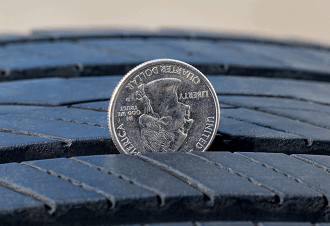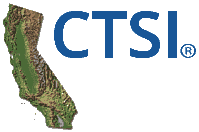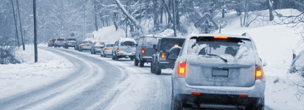The Basics
Slow Down. It’s harder to control or stop your vehicle on a slick or snow-covered surface. In fact, 2022 there were an estimated 153,620 police reported traffic crashes that occurred when there was snow/sleet conditions at the time of the crash. On the road, increase your following distance enough so that you’ll have plenty of time to stop for vehicles ahead of you.
Don’t crowd a snow plow or travel beside the truck. Snow plows travel slowly, make wide turns, stop often, overlap lanes, and exit the road frequently. If you find yourself behind a snow plow, stay far enough behind it and use caution if you pass the plow.
What to Do in an Emergency
If you are stopped or stalled in wintry weather, stay focused on yourself and your passengers, your car, and your surroundings.
- Stay with your car and don’t overexert yourself.
- Let your car be seen. Put bright markers on the antenna or windows and keep the interior dome light on.
- Be mindful of carbon monoxide poisoning. Make sure your exhaust pipe is clear of any snow and run your car only sporadically — just long enough to stay warm. Don’t run your car for long periods of time with the windows up or in an enclosed space.
Changes You May Notice
Tires
As the outside temperature drops, so does tire inflation pressure. Make sure each tire is filled to the vehicle manufacturer’s recommended inflation pressure, which is in your owner’s manual and on a label located on the driver’s side door frame. Do not inflate your tires to the pressure listed on the tire itself. That number is the maximum pressure the tire can hold, not the recommended pressure for the your vehicle.
Some other tips:
- Inspect your tires at least once a month and before long road trips.
- It’s best to check the tires when they’re cold, meaning that they have not been driven on for at least three hours.
- Check each tire’s age. Some vehicle manufacturers recommend replacing tires every six years regardless of use.
 An inspection is not just about checking tire pressure and age. Remember to check for any damage or conditions that may need attention, and check the spare tire, too. When checking the tread and sidewalls, look for any cuts, punctures, bulges, scrapes, cracks or bumps. You also want to look for the built-in wear bar indicators or use a quarter to help determine when it’s time to replace your tires. For the quarter test insert a quarter into your tread groove. If the tread doesn’t touch George Washington’s head, you should think about replacing your tires. If you find tire damage, take your vehicle to a tire service professional.
An inspection is not just about checking tire pressure and age. Remember to check for any damage or conditions that may need attention, and check the spare tire, too. When checking the tread and sidewalls, look for any cuts, punctures, bulges, scrapes, cracks or bumps. You also want to look for the built-in wear bar indicators or use a quarter to help determine when it’s time to replace your tires. For the quarter test insert a quarter into your tread groove. If the tread doesn’t touch George Washington’s head, you should think about replacing your tires. If you find tire damage, take your vehicle to a tire service professional.
Consider installing snow tires.
Car Seats
In colder weather, parents typically dress their children in winter coats. But it’s important to know that heavy coats can interfere with the proper harness fit on a child in a car seat. When your child will be secured in a car seat, pick thin, warm layers, and place blankets or coats around your child after the harness is snug and secure for extra warmth.
Also, make sure car seats and booster seats are properly installed and that any children riding with you are in the right seat for their ages and sizes.
Batteries
When the temperature drops, so does battery power. In cold weather, gasoline and diesel engines take more battery power to start, and electric and hybrid-electric vehicles’ driving range can be reduced. Have a mechanic check your battery, charging system, belts, and for any other needed repairs or replacements.
Plan Your Route
Check your local weather and traffic reports before heading out. If your roads are not in good shape, consider postponing non-essential travel until the roads are cleared. If you do have to go out, make sure you are prepared in case you become delayed while traveling. If making a long road trip when winter weather is forecasted, consider leaving early or changing your departure to avoid being on the roads during the worst of the storm.
Familiarize yourself with directions and maps before you go—even if you use a GPS—and let others know your route and anticipated arrival time. On longer trips, plan enough time to stop to stretch, get something to eat, check your phone, and change drivers or rest if you feel drowsy.
Avoid Risky Driving Behaviors
You know the rules: Do not text or drive distracted; obey posted speed limits; and always drive sober. Both alcohol and drugs can impair safe and responsible driving by affecting things such as coordination, judgment, perception, and reaction time. And remember: always wear your seat belt.





Comments are closed.